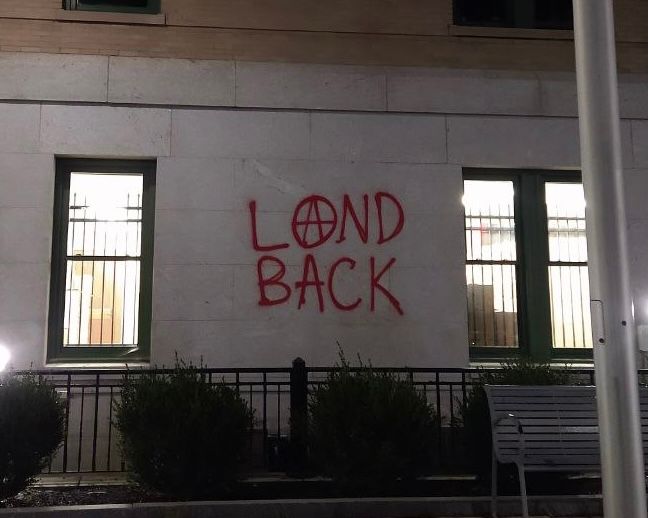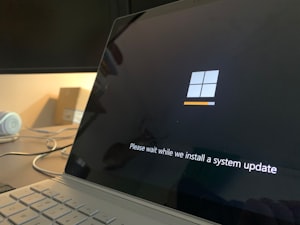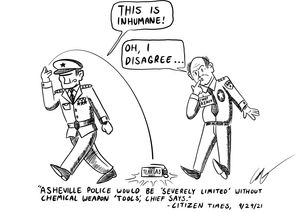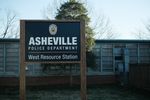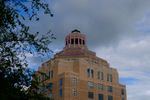Content Warning: Mention of genocide and ongoing violence against indigenous people.
Anonymous activists tagged a Buncombe County Government building early Monday morning, providing a message that runs counter to the typical "Columbus Day" rhetoric.
"Land Back," says one tag. Another reads "Avenge Indigenous Children."
These messages come three days after President Joe Biden declared this Monday, October 11th, the first official "Indigenous People's Day" in the United States. While some commended the move, others noted that the new proclamation is "too little, too late" and does not replace Columbus Day, a holiday celebrating Christopher Columbus and his genocide of indigenous people.
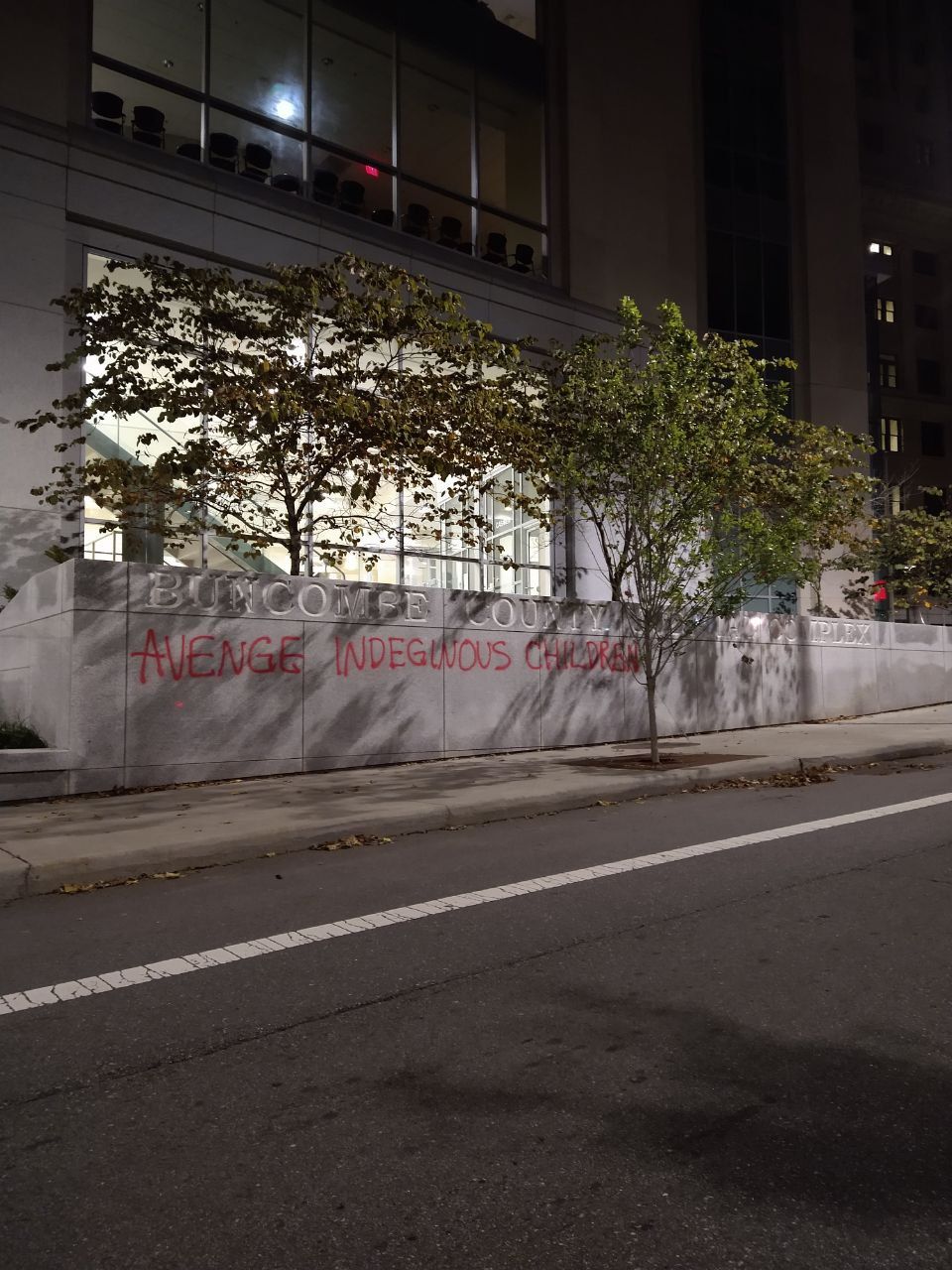
"Land Back" is a slogan used by an indigenous-led movement to return land stewardship to indigenous people. Despite only making up around 5% of the world's population - primarily due to genocide and colonialism - indigenous people protect 80% of the world's biodiversity. Because of this, supporters of the movement say that it is not only about repairing harm done to indigenous populations but about combatting the climate crisis. Biodiversity plays a vital role in the earth's climate regulation. As biodiversity collapses, it can create feedback loops that intensify climate change. Reduction in biodiversity is also linked to zoonotic pandemics like COVID-19.
"Avenge Indigenous Children" is likely a reference to the remains of over 1,000 indigenous children found in unmarked graves near Canadian "residential schools" over the summer. While the news mostly comes from Canada, there were hundreds of similar schools in the US. More than 70 of these schools are still open in the US as of 2020. Indigenous women across the US and Canada are also continually missing and murdered at a highly disproportionate rate.
One of the current fronts at the intersections of "Land Back," climate crisis, and indigenous soverignity movements is the effort to stop Line 3, a crude oil "tar sands" pipeline that crosses treaty-protected Anishinaabe land on its path from Alberta to Wisconsin.
To learn more about the historical territories that were stolen to create the United States and Canada, see native-land.ca. This map shows that Asheville exists on stolen Tsalagi land.
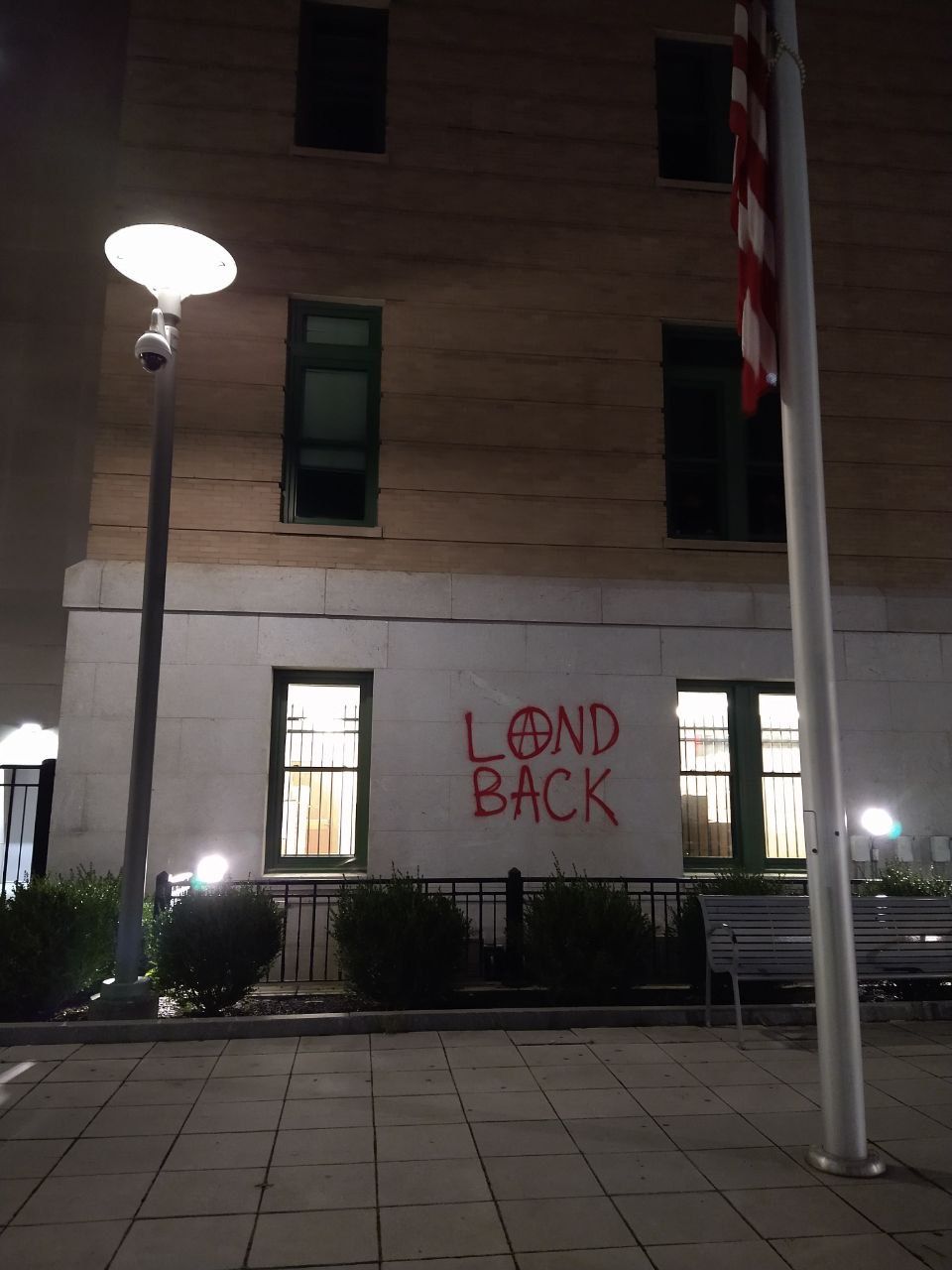
We are 100% funded by community members like you. If you like what you just read, help us make more like it by becoming a patron.
Become a Patron!